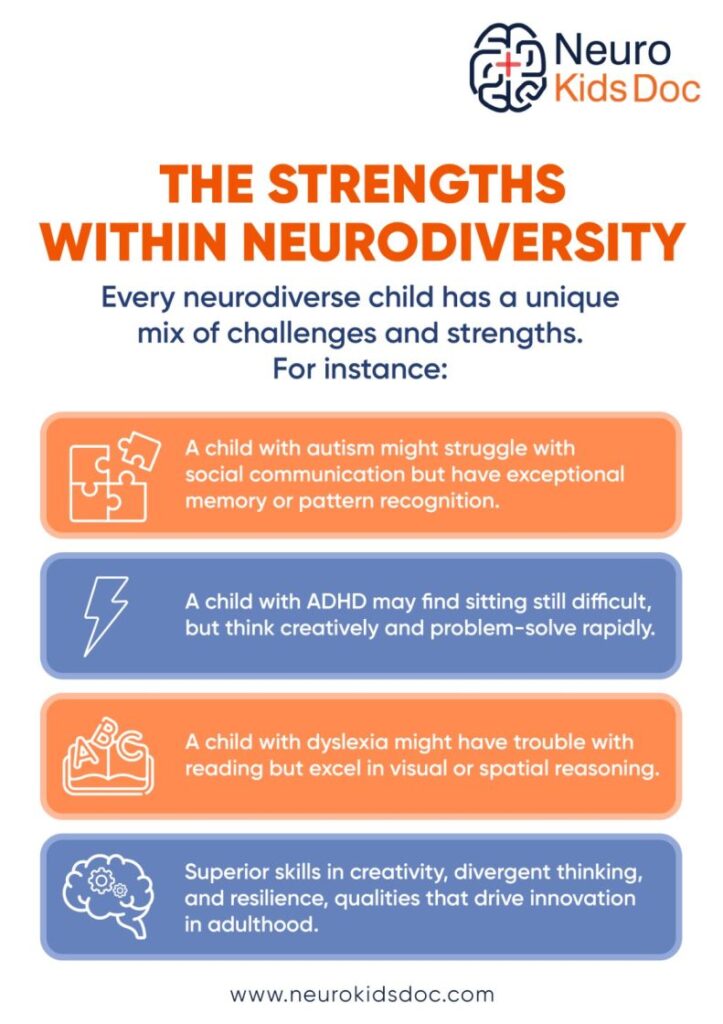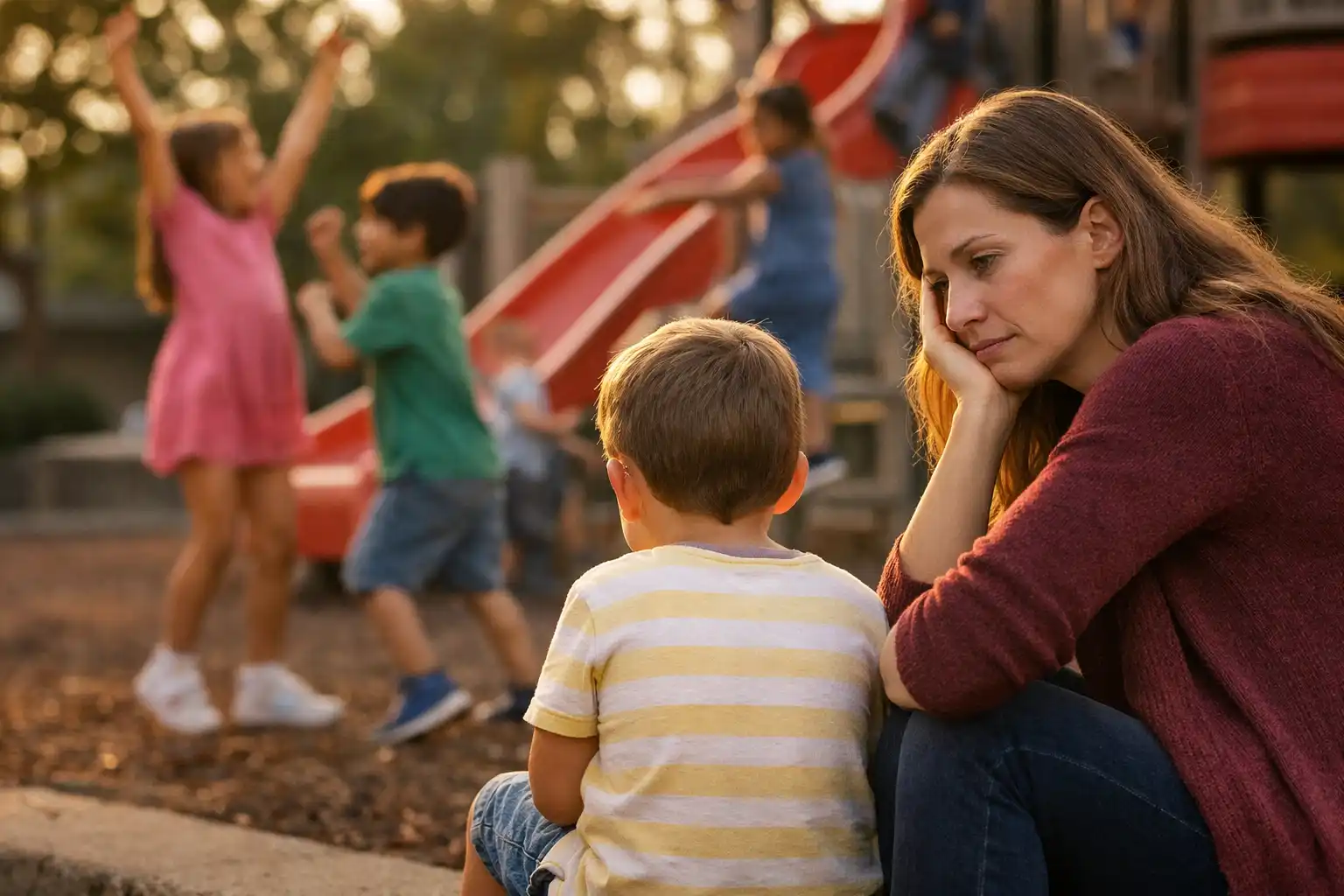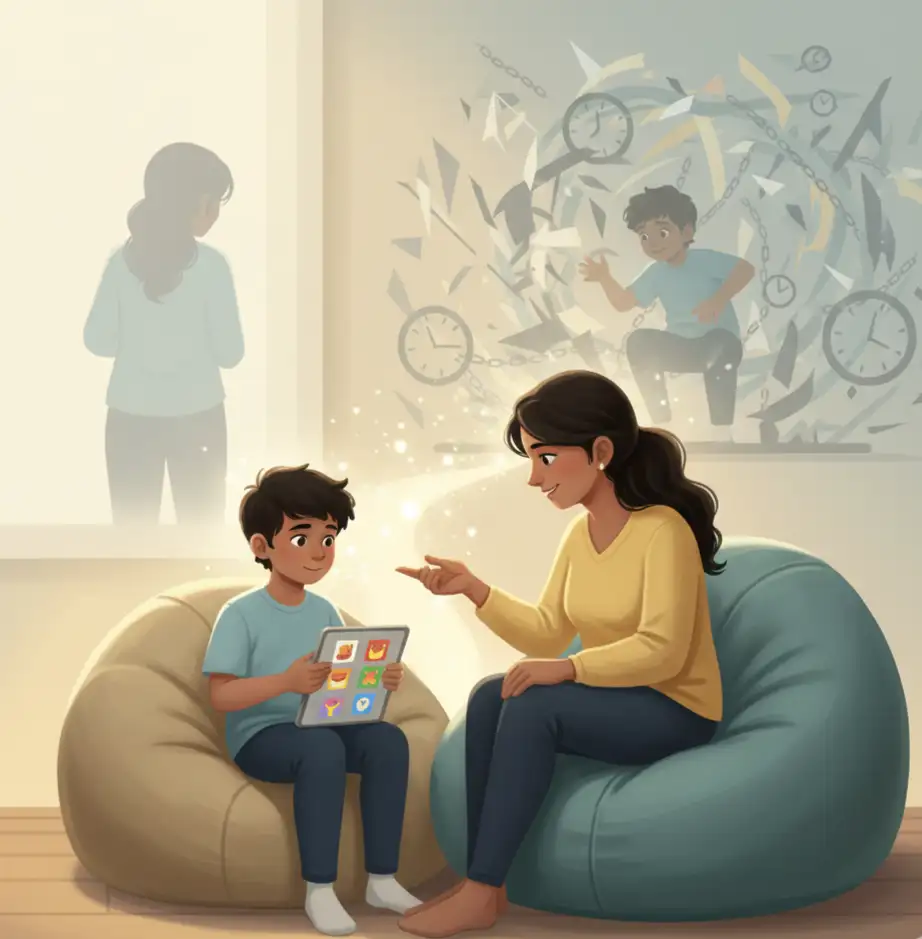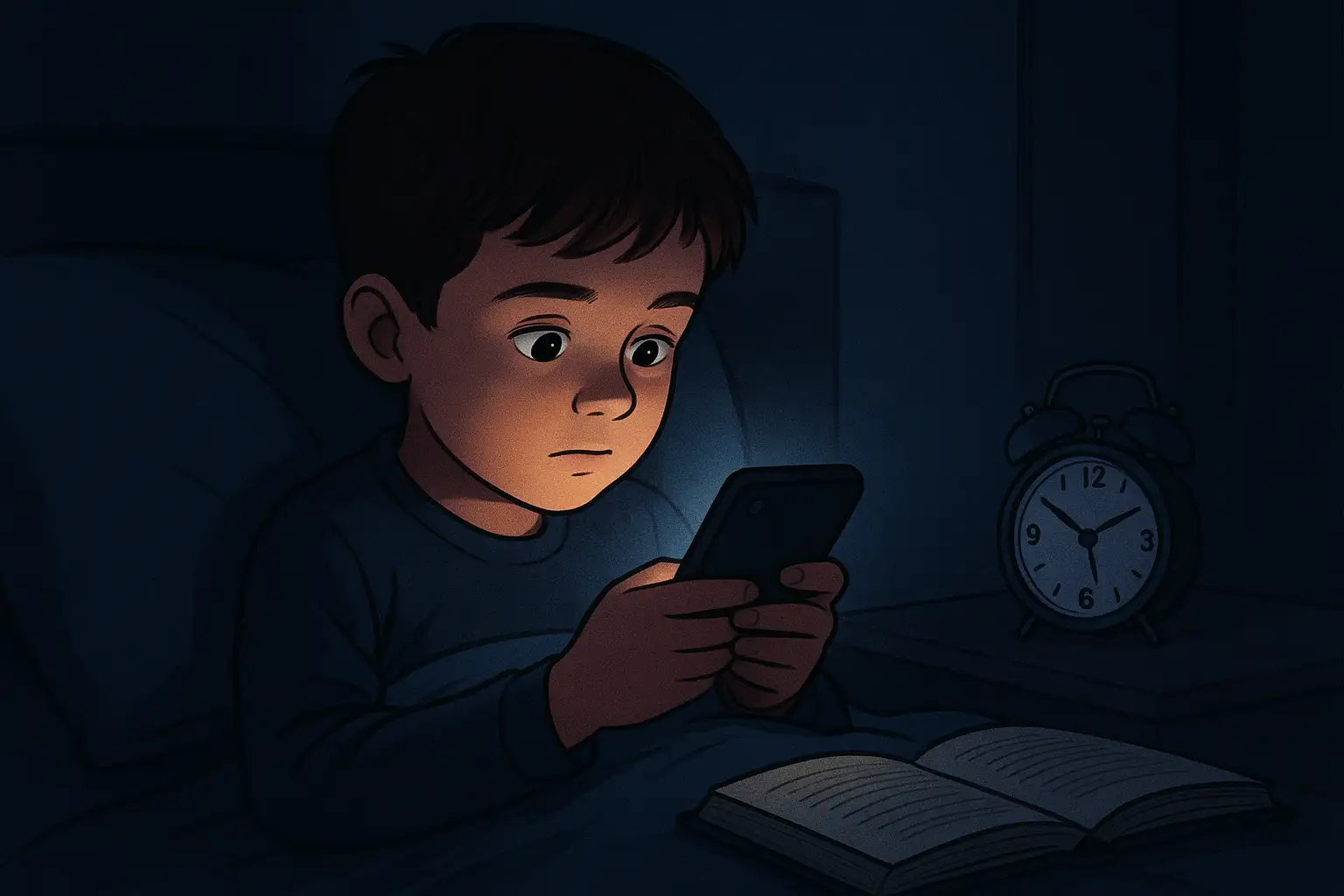If you’ve ever looked at your child and thought, “They just seem to see the world differently”, this blog is for you. That difference has a name; it is called neurodiversity.
It’s a term that’s being used more and more in classrooms, parenting spaces, and therapy discussions. But what does it truly mean? And how can understanding it change the way we support our children?
Let’s unpack this.
What Exactly Is Neurodiversity?
The idea of neurodiversity began in the 1990s as a movement to recognize that not all brains function the same way, and that’s not necessarily a bad thing. Just as biodiversity keeps ecosystems healthy, neurodiversity keeps humanity creative, adaptable, and rich in perspective.
In simple terms, neurodiversity means there’s no single “normal” brain. Children with conditions like autism, ADHD, dyslexia, dyspraxia, and Tourette syndrome all fall within the neurodiverse spectrum. These aren’t “defective” brains; they’re differently wired ones.
Neuroscientific research supports this idea, and studies using MRI scans have shown distinct patterns of brain connectivity in children with autism or ADHD. These differences influence how they process information, pay attention, communicate, and even feel emotions.
What Neurodiversity Is Not
It’s easy to misunderstand the word “neurodiversity.”
Some people assume it means ignoring challenges or pretending all children have equal abilities in every area. That’s not true. Neurodiversity doesn’t mean every child will find learning easy. It means that difficulties should be met with understanding and strategy, not stigma.
Here’s what it’s not:
- It’s not a disorder itself. It’s a perspective.
- It’s not about denying support; it’s about providing the right kind of support.
- It’s not a “trend” or “excuse”; it’s how science now understands human diversity in brain function.
When we see neurodiversity through this lens, it changes everything, from how we talk to our children to how schools shape their teaching methods.
The Strengths Within Neurodiversity

Every neurodiverse child has a unique mix of challenges and strengths.
For instance:
- A child with autism might struggle with social communication but have exceptional memory or pattern recognition.
- A child with ADHD may find sitting still difficult, but think creatively and problem-solve rapidly.
- A child with dyslexia might have trouble with reading but excel in visual or spatial reasoning.
Research from Cambridge University has shown that neurodiverse brains often demonstrate superior skills in creativity, divergent thinking, and resilience, qualities that drive innovation in adulthood.
When nurtured well, these differences can become incredible strengths.
How Parents Can Support a Neurodiverse Child
Parenting a neurodiverse child isn’t about trying to make them “fit in.” It’s about helping them find environments where they can shine.
Here’s how you can start:
- Observe and accept. Notice what energizes your child and what drains them. Acceptance is the first step toward confidence.
- Collaborate with professionals. Therapists, special educators, and pediatric neurologists can help tailor strategies that work for your child’s brain.
- Focus on strengths. Build learning around what your child loves, whether it’s art, numbers, or nature.
- Keep routines predictable. Many neurodiverse children thrive on structure; it makes their world feel safe and manageable.
- Be patient with progress. Growth may come in uneven bursts, and that’s okay. Celebrate small victories.
Remember, support doesn’t mean “curing” or “fixing.” It means understanding and empowering.
Why This Understanding Matters
When we recognize and celebrate neurodiversity, we’re doing more than helping individual children; we’re shaping a more compassionate society.
Children who grow up knowing that their differences are valid develop stronger self-esteem, better coping skills, and deeper empathy for others.
As educators, parents, and caregivers, our job isn’t to make every brain the same. It’s to create a world where every child’s mind has space to grow.
Summing Up
If you’ve noticed your child learns or processes the world differently, don’t rush to worry. Understanding neurodiversity early can help you guide them toward the right support and strategies.
For expert care, you can consult Dr. Aman PS Sohal, pediatric neurologist in Dubai. Early recognition and support can make all the difference.








